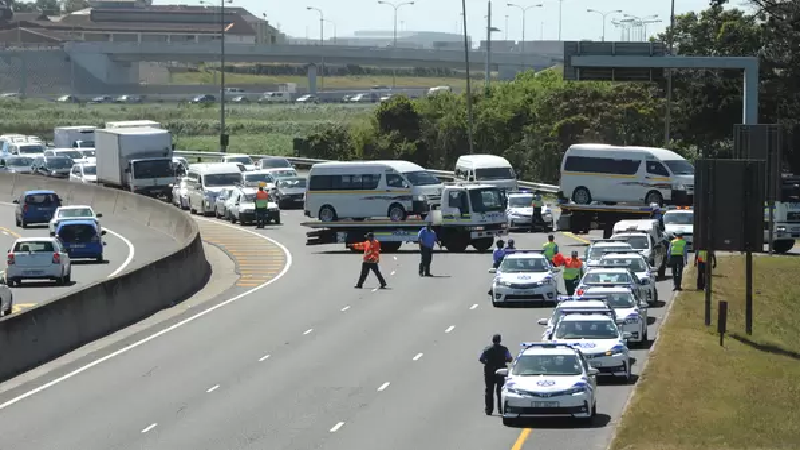While the lawlessness of taxi drivers on Cape Town roads is no secret to motorists in the city, taxi drivers have recently become more brazen in defying the rule of law. Just weeks ago taxi drivers raised havoc in Dunoon and have now, mere days ago, again defiantly blockaded major routes in and out of the city in protest against receiving fines and having their vehicles impounded – as law enforcement requires when citizens are found in contravention of the law. The City, however, has indicated that lawlessness will not be tolerated and that constructive engagements with the South African National Taxi Council (Santaco) are expected to continue today.
The first deputy chairperson of Santaco in the Western Cape has indicated that the drivers involved in the recent blockade in Cape Town have been acting on their own accord and that their actions are not supported by the council.
“The blockade of last week was not our move – we are not in support of any blockade because we do have forums where we can explore our demands,” said first deputy chairperson of Santaco in the Western Cape, Mzoxolo Didela.
“The drivers are just employees…they are putting everybody at ransom with what they do.”
Prior to this acknowledgement, however, Didela argued that taxi drivers are complaining of “huge” traffic fines and the impounding of vehicles operating illegally by law enforcement officials in the city. He says that the grievances and protests are not a matter of taxi drivers and Santaco not wanting the law to be enforced, but failed to explain what taxi drivers and their respective associations expect law enforcement to do when drivers break the law – as they more than often do.
Didela also seemed to suggest that due to the high volume of customers for taxis in the city and the failing railway system, taxi drivers and vehicles operating without operating licenses should simply be granted those licenses by government.
However, the Western Cape transport MEC, Bonginkosi Madikizela has explained that the logic the taxi drivers and associations follow regarding their wanting to be “legalised” simply because of the volume of customers is deeply flawed and asserted that acts and attitudes of lawlessness “cannot be tolerated”.
“I want to make the point that lawlessness cannot be tolerated and the point Mr Didela is making on them operating without operating licenses is like someone buying a gun from the black market and when that person is caught by the police they say ‘Well, because there’s a high level of crime that’s why I bought the gun, so legalise it’…it doesn’t work like that,” he said.
“You can’t break the law and then, when the law is taking its course, break the law again by blocking the road. That is totally unacceptable. When you are driving without an operating license what do you expect law enforcement to do? Obviously they must make sure that the law is applied to everyone.”
Madikizela also addressed the serious lack of control over, and regulation of, taxi drivers, saying that it’s unacceptable for employers to have no control over employees. An increase in regulation and control, he feels, will ensure that drivers who act unlawfully on the roads will “have something to lose”.

Furthermore, Madikizela highlighted that the issue of taxis operating without licensing is primarily caused by problematic activity endorsed and implemented by taxi associations – a claim which Didela conceded.
“We need to deal with the issue of taxis operating without licenses but we must be honest about the source of this problem…The reason we have people operating without operating licenses is caused by the taxi associations. When you know the route is over-supplied but you allow individuals to join your associations because there’s an incentive of a joining fee, you end up over-saturating that particular route – which is a massive cause of conflict.
It cannot be that people accept taxi operators and then pressure the City to issue operating licenses,” said Madikizela.
“The MEC is correct – part of the problem is being caused by us and we’ve been talking to the people to not recruit members and then expect government to legalise them…I support that drivers need to be regulated because at the end of the day, you find that if they happen to incur fines they run around putting our business in disrepute,” said Didela.
Madikizela will continue engagements with Santaco today and further protests are not officially expected for this week.
VOC






 WhatsApp us
WhatsApp us 

